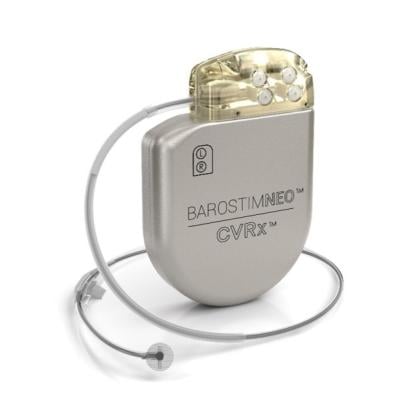
May 9, 2022 — CVRx, Inc., developer of the world’s first FDA-approved neuromodulation device to treat the symptoms of heart failure, has received U.S. Food and Drug Administration (FDA) approval for magnetic resonance (MR) conditional labeling for its Barostim System.
The Barostim System now includes instructions to allow for safe MRI scans of the head and lower extremities, meaning heart failure patients implanted with Barostim have more diagnostic options. All Barostim System patients, including those already receiving Barostim therapy, can safely receive an MRI at 1.5T when conditions of use are met.
"This is a significant milestone for CVRx, and more importantly, for the heart failure patients benefitting from our therapy," said Nadim Yared, President and CEO of CVRx. "These heart failure patients undergo many physical assessments. This approval expands the diagnostic imaging options available to physicians for these patients, should the need arise."
Heart failure is a chronic, progressive condition in which the heart muscle is unable to pump enough blood to meet the body’s needs for blood and oxygen. Barostim works by stimulating baroreceptors – natural sensors in the body that tell the nervous system how to regulate heart, kidney and vascular function. These effects reduce the heart’s workload and help it pump more efficiently, helping to improve the symptoms for patients with heart failure. In the BeAT-HF Study, patients who had Barostim implanted were able to walk further in a 6-minute hall walk test, have a higher quality of life and appeared to have a reduction in the rate of serious cardiovascular events, including arrythmias, compared to the control group.
For more information: www.cvrx.com


 February 03, 2026
February 03, 2026 









